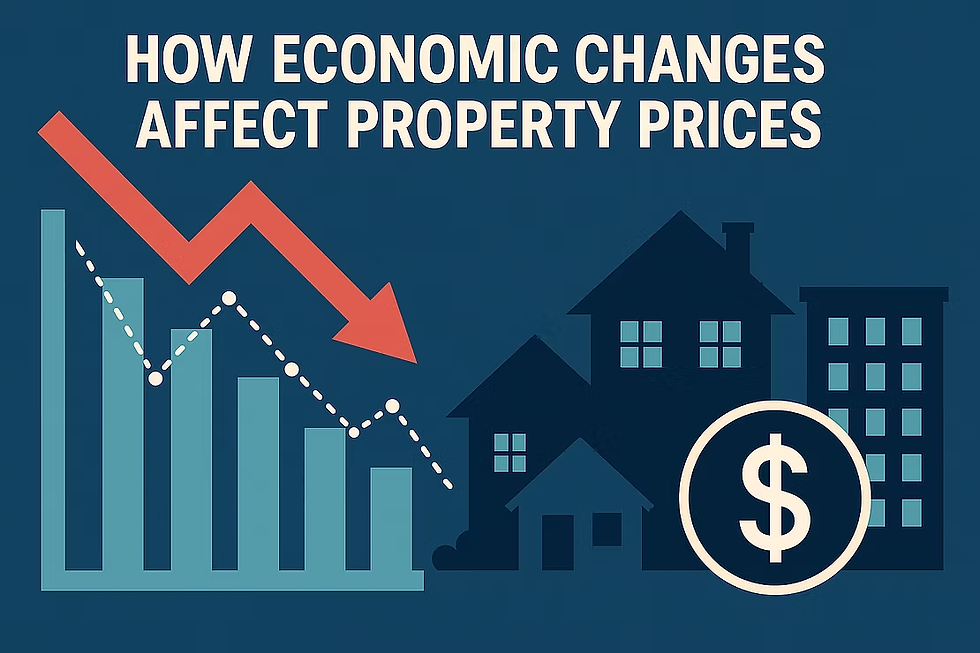How Technology Is Changing the Real Estate Industry
- Digital Transformation
- Oct 20, 2025
- 3 min read


Technology is profoundly reshaping the real estate industry in 2025, driving innovation in how properties are bought, sold, managed, and developed. Key technological advancements such as artificial intelligence (AI), big data analytics, blockchain, virtual reality (VR), internet of things (IoT), and PropTech (property technology) are transforming market dynamics, customer experiences, and operational efficiency in real estate.
Artificial Intelligence Transforming Real Estate
AI is revolutionizing real estate by automating complex processes, providing predictive analytics, and enhancing decision-making. AI-powered tools can analyze large datasets to predict property values, optimize pricing, and improve investment strategies. Generative AI and agentic AI are enabling smart buildings and AI-driven asset management that optimize energy use, security, and tenant services. AI also powers chatbots and virtual assistants to improve client communication and streamline property management tasks. The growing AI ecosystem, including major tech hubs and data centers, is fueling demand for technology-driven real estate assets in innovative
PropTech and Digital Platforms
PropTech startups are creating platforms that digitize and enhance property buying, selling, and management experiences. Online marketplaces facilitate transactions between buyers and sellers, while real estate CRM systems manage leads and contracts more efficiently. Virtual and augmented reality enable immersive property tours, allowing potential buyers to explore homes remotely. Digital twins—3D, data-driven replicas of physical properties—help investors and urban planners analyze building performance and environmental impact. Mobile apps are becoming mainstream for property search and management, greatly expanding customer reach.
Blockchain for Security and Transparency
Blockchain technology is being adopted to improve transaction security, transparency, and efficiency. Through tokenization, fractional property ownership becomes accessible to a broader population, democratizing investment opportunities. Smart contracts automate and expedite verification and closing processes in sales and leases, reducing costs and eliminating fraud risks.
Big Data and Advanced Analytics
Big data analytics provides real estate professionals with market insights, consumer behavior patterns, and risk assessment capabilities. Data visualization tools help make sense of complex datasets, supporting more informed decision-making. This drives innovation in personalized listings and tailored investment strategies, aligning with emerging buyer preferences.
Sustainability and Smart Buildings
Sustainability is a central focus with energy-efficient smart buildings becoming standard. IoT-enabled automation controls lighting, climate, and security, enhancing comfort and reducing costs. The integration of AI and IoT contributes to eco-friendly building operations and supports sustainable development goals in the industry.
Demographic and Market Impacts
Younger, tech-savvy demographics like millennials and Gen Z are influencing demand patterns with preferences for digital tools, online research, and communication via text or chat. Real estate companies are adapting by improving online listings, leveraging marketing automation, and providing customized experiences to attract these groups. The rise of tech hubs hosting AI companies and data centers is also shifting real estate demand geographically toward innovation-driven urban areas.
Conclusion
Technology in 2025 is fundamentally altering the real estate industry—from how properties are marketed and transacted to how buildings are designed and managed. The widespread adoption of AI, PropTech, blockchain, and data analytics is meeting evolving customer expectations, boosting operational efficiency, and driving industry growth. Sustainability and smart automation further enhance property value and appeal. For investors, developers, and agents, leveraging these technology trends is critical to staying competitive in a rapidly evolving market landscape.
This digital transformation in real estate presents unprecedented opportunities and challenges, positioning technology as a key enabler of the industry's future success.



Comments